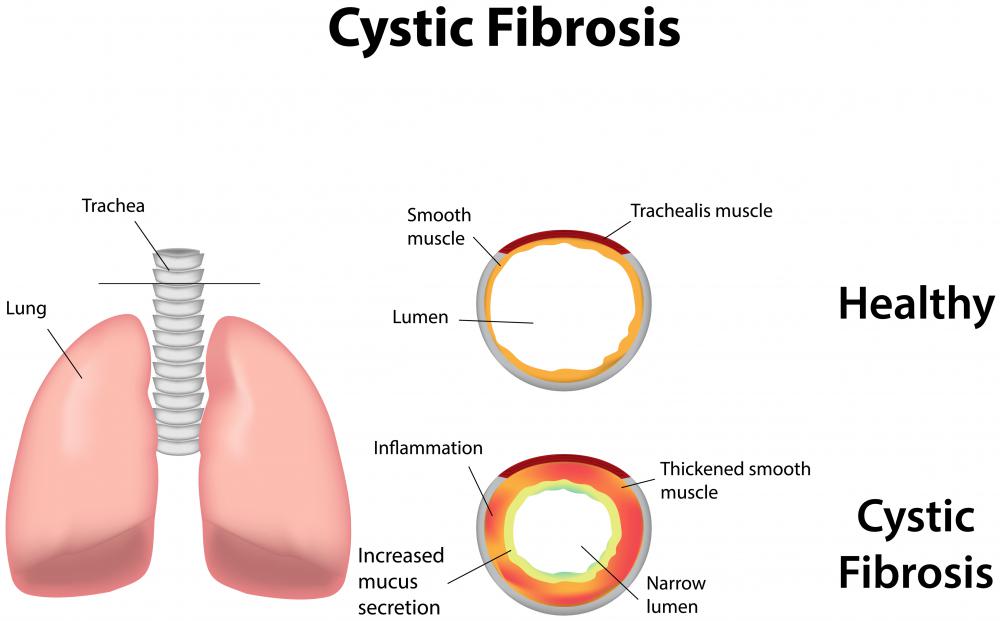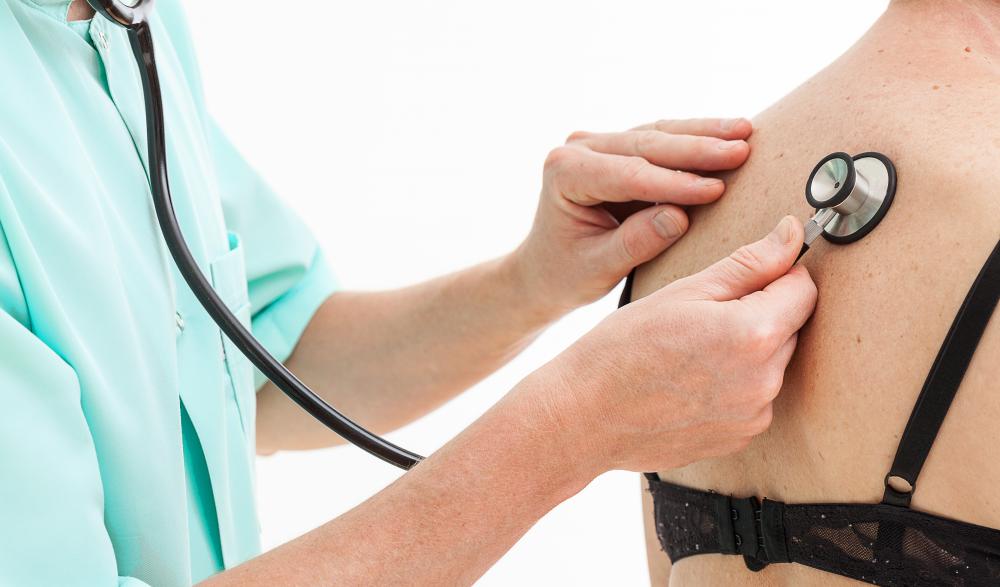At TheHealthBoard, we're committed to delivering accurate, trustworthy information. Our expert-authored content is rigorously fact-checked and sourced from credible authorities. Discover how we uphold the highest standards in providing you with reliable knowledge.
What are the Causes of Lung Lesions?
Lung lesions, abnormal changes in the tissue of the lungs, can be caused by a wide variety of things from parasitic infections to exposure to pollution. When a lung lesion is identified, medical testing is usually conducted to learn more about it so a doctor can develop an appropriate management and treatment plan. It is important to be aware that while a “lesion” may sound frightening, lesions on the lung may be benign and easily treatable, and the identification of abnormal tissue in the lungs should not be a cause for immediate panic.
Many disease processes in the lungs can lead to tissue changes over time. People with conditions like asthma, recurrent bronchitis, allergies, and genetic conditions like cystic fibrosis can develop lesions on the lung as a result of chronic lung irritation. Exposure to irritants like pollutants and smoke can also cause the tissue in the lungs to change. Colonization by viruses, bacteria, and fungi, as seen in a variety of lung infections, are also a possible cause of lung lesions.

Trauma to the lungs caused by surgery, penetrating injuries, or inhalation of substances like water can also change the tissue in the lungs. Conditions like pulmonary edema, where the lungs fill with fluid over time, can cause damage to the alveoli, the small sacs in the lungs, and people with circulatory diseases may be at increased risk of lung lesions because of the increased incidence of pulmonary edema in patients with such conditions.

Sometimes, lung tissue spontaneously mutates and starts developing into a small mass. Some of these masses may be benign, although removal may be recommended to help the patient breathe more comfortably. In other cases, a mass can be malignant. Cancers of the lungs can also develop when another cancer metastasizes from elsewhere in the body.
Lung lesions may be visible on medical imaging studies and can be readily apparent during surgery or pulmonoscopy, a medical procedure where a camera is used to look inside the lungs. When a lesion is spotted, a doctor may request a biopsy sample. This sample involves taking a small piece of tissue to culture and look at in a lab. Culturing can reveal the cause and provide more information about the nature of the lesion.

Treatments for lung lesions can include medications to eliminate infectious organisms, better management of chronic pulmonary conditions, breathing exercises to help people retain lung function, and even transplant to replace lungs too damaged to function.
AS FEATURED ON:
AS FEATURED ON:



















Discussion Comments
My chest X-ray showed I have a 7mm lesion in the mid upper lung. Now they want me to take a CT scan.
Does this count as a lesion? When ever I breathe, I feel a sharp pain in my chest for a short period of time, But it then goes away and come back. Now I can't participate in any PE things because of this. Does anyone know why this is?
@lonelygod - I am afraid that lung lesions can only be identified by a doctor because they are internal in nature. While you may feel like your lungs are tearing open there is really no way to know if you have lung lesions unless your doctor runs tests for them.
If you are worried about the condition of your lungs and feel your own doctor isn't doing enough to help you with the pain and symptoms you are experiencing, I would recommend finding someone to give you a second opinion. Also there is nothing wrong with asking for certain tests to be done. You are paying for your medical care so feel free to speak up and request what you want done.
How do you know if you have developed lung lesions? Is it something only a doctor can identify with testing or are there signs that anyone can spot?
I have been having numerous cases of bronchitis lately brought on by my out of control asthma. My doctor has given me a ventilator but I really feel like my lungs are coming a part at the seems. It is really painful.
Currently I am worried that my lungs may be undergoing some serious damage with all of the hacking I have been doing. My lungs feel like they are on fire no matter what I do. I really hope they are OK but it is tough not knowing how serious things are.
Post your comments